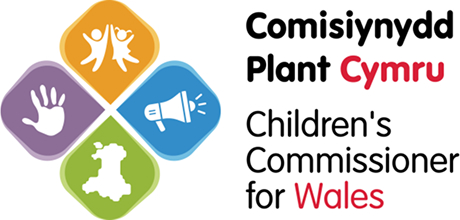Amberleigh Residential Therapeutic School: creating safe spaces to explore different views and experiences
Amberleigh Residential Therapeutic School is an independent special school in Powys, and is part of an accredited therapeutic community. This accreditation is based on a set of 10 Core Values against an evidence based set of standards held by the Royal College of Psychiatrists.
A fundamental aim of the school is that all young people have a right to an equal voice and can participate in decisions within the community. Empowerment is rooted in relationships that facilitate participation based on having a voice, respect and interdependence. Therapeutic communities are designed to facilitate these sorts of relationships.
At the heart of the this culture are twice-daily meetings immediately before and after school, as well as twice-weekly extended meetings. The purpose of these meetings is to enable young people understand, talk about and express their thoughts and experiences in an open, honest and safe way.
In these meetings a space is also created for young people to voice concerns and raise issues in the presence of their peers as well as staff on matters that affect them. Using the therapeutic community approach means that education, care and therapy are integrated and daily meetings give an opportunity for young people to ask questions from all of parts of the community, it also enables young people to raise complaints and be involved in making changes. Meetings are also an opportunity for young people to appropriately challenge others, and to be supported to discuss any issues that have arisen with other community members.
Within the school these are further supported by weekly school community assemblies, and whole group, small group and individual discussions, which often include a focus on human rights and equality.
The Head teacher describes young people in the school as, ‘empowered and enabled to question one another in a positive and non-judgmental manner… Young people begin to instinctively learn to use these skills to make themselves heard and be able to contribute to discussion and debate in a healthy way. A direct result is that they develop the skills to accept difference and the expression of views or opinions.’
Case study: learning and experiencing rights through home education
Madeleine Hobbs was a member of the Children’s Commissioner’s Advisory Panel of Young People between 2018-2021. Madeleine has been home educated and has been empowered to understand and access her rights through experiential learning.
As a young child, Madeleine developed an early understanding of her participatory rights through experiences and play. Madeleine would accompany family members when they cast votes, and at home Madeleine made a ballot box and voting card to hold a family election. Her interest in this led to her initiating explorations in politics, citizenship and human rights. These explorations have included research into the suffragettes, visiting the Houses of Parliament and taking action on matters that are important to her, including campaigning against proposed legislation around home education. This has enabled Madeleine to directly experience her right to freedom of association by taking part in peaceful assembly with her community.
Madeleine voted for the first time in the 2021 Senedd elections. She describes the experience as, ‘incredibly exciting. It felt like I was doing something very real, and something I had looked forward to for a long time.’
Madeleine’s research into politics and history also motivated her to become a member of the Commissioner’s Advisory Panel, ‘I was inspired by the suffragettes and the effort, time and risk they put in to fight for the rights of women. I wanted to make a difference to people’s lives and to the rights of children. My experiences in education meant I already felt confident to express my views but the panel gave me a new context for this. Of course we didn’t all agree on the things, and that was important. We had really valuable discussions sharing our different experiences and viewpoints, and opportunities to share these in political environments. It was an opportunity where I could raise my voice and expect the same respect as an adult.’

